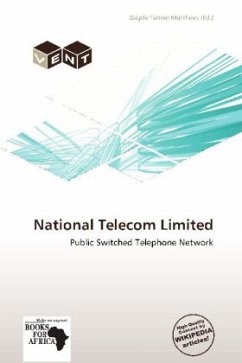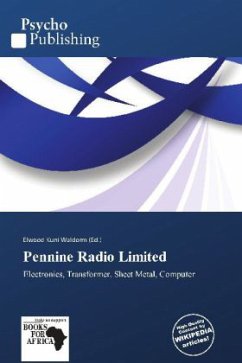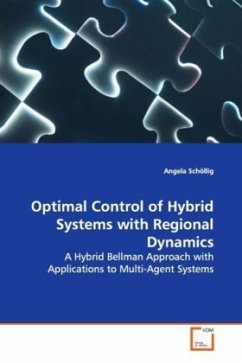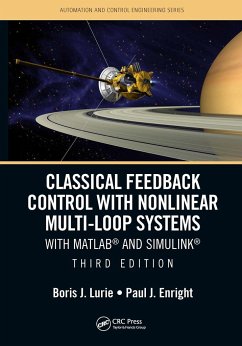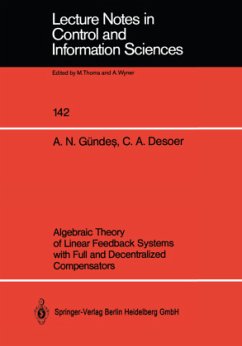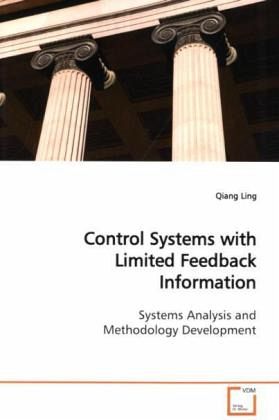
Control Systems with Limited Feedback Information
Systems Analysis and Methodology Development
Versandkostenfrei!
Versandfertig in 6-10 Tagen
45,99 €
inkl. MwSt.

PAYBACK Punkte
23 °P sammeln!
This book studies control systems with limitedfeedback information. The focus is on two types oflimitations on the feedback information, dropout andquantization. By dropout, we mean that the desiredfeedback measurement is missed. By quantization, wemean the feedback measurement is only described by afinite number of bits, which introduces ``measurementerror''. We consider two dropout models, independentand identically distributed (i.i.d.) processes andMarkov chains. Under i.i.d. dropouts, we provide aclosed-form expression for the output's powerspectral density, which can be used to greatlysim...
This book studies control systems with limited
feedback information. The focus is on two types of
limitations on the feedback information, dropout and
quantization. By dropout, we mean that the desired
feedback measurement is missed. By quantization, we
mean the feedback measurement is only described by a
finite number of bits, which introduces ``measurement
error''. We consider two dropout models, independent
and identically distributed (i.i.d.) processes and
Markov chains. Under i.i.d. dropouts, we provide a
closed-form expression for the output's power
spectral density, which can be used to greatly
simplify system synthesis, such as design of the
optimal dropout compensation. Under dropouts governed
by a Markov chain, we provide a necessary and
sufficient stability condition, and propose a method
to compute performance measured by the output's
power. For a quantized system, we derive the minimum
constant bit rate to guarantee stability and propose
a dynamic bit assignment policy(DBAP) to achieve such
minimum bit rate. It also investigates the system
performance under DBAP. The preliminary research
confirms the superiority of DBAP against other
quantization policies.
feedback information. The focus is on two types of
limitations on the feedback information, dropout and
quantization. By dropout, we mean that the desired
feedback measurement is missed. By quantization, we
mean the feedback measurement is only described by a
finite number of bits, which introduces ``measurement
error''. We consider two dropout models, independent
and identically distributed (i.i.d.) processes and
Markov chains. Under i.i.d. dropouts, we provide a
closed-form expression for the output's power
spectral density, which can be used to greatly
simplify system synthesis, such as design of the
optimal dropout compensation. Under dropouts governed
by a Markov chain, we provide a necessary and
sufficient stability condition, and propose a method
to compute performance measured by the output's
power. For a quantized system, we derive the minimum
constant bit rate to guarantee stability and propose
a dynamic bit assignment policy(DBAP) to achieve such
minimum bit rate. It also investigates the system
performance under DBAP. The preliminary research
confirms the superiority of DBAP against other
quantization policies.






